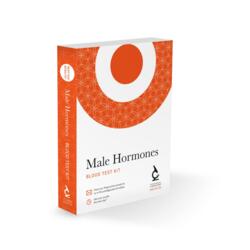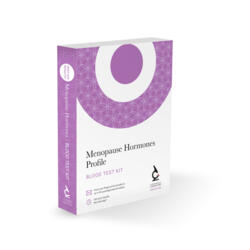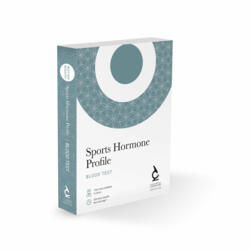
A comprehensive blood test to investigate the hormonal, thyroid, and nutritional factors that contribute to female hair loss, including iron, vitamin D, thyroid function, and reproductive hormones.
This profile requires a phlebotomy sample as it includes a full blood count

This profile is specifically tailored to analyse hormones related to fertility, menopause, and period problems. It can be be used to diagnose problems or to monitor hormone replacement medications.
Including oestrogen, luteinising hormone, follicle stimulating hormone, testosterone and prolactin.
It can be performed on a finger-prick home sample as well as a phlebotomy sample.

A comprehensive blood test for men experiencing hair loss. Analyses hormones, key nutrients, thyroid function, and blood health to uncover root causes such as low testosterone, thyroid imbalance, or nutritional deficiencies.
This profile requires a phlebotomy sample as it includes a full blood count

Analyse all the hormones that are vital for men's physical, sexual and mental health and wellness.
These hormones which all diminish rapidly from middle age, include testosterone, free testosterone, DHEAS, SHBG, FSH, LH, oestradiol, prolactin and free androgen index.
This test is for every man, whether taking hormone treatments or not.
It can be done with a finger-prick as well as on a phlebotomy sample

Confirm if you are in menopause with this targeted profile including Oestradiol, Luteinising Hormone, Testosterone and Follicle Stimulating Hormone. Included is Thyroid Stimulating Hormone in case it is thyroid problems mimicking menopause symptoms.
While symptoms at a certain age may very strongly indicate the diagnosis, it is better to know for sure with a blood test.
This test can be performed on a finger-prick home sample as well as with a phlebotomy sample.

Check the full range of hormones that affect, or are affected by, your fitness and sports activities.
It includes liver and thyroid function along with testosterone, SHBG, DHEAS, LH, FSH, oestradiol and prolactin.
It identifies any deficiencies or changes from fitness activity or from supplements.
Due to the comprehensive scale of this profile a phlebotomy sample is needed.

Unlock peak performance with our most comprehensive blood test for athletes and active individuals. The Ultimate Athlete Performance panel includes over 60 biomarkers covering hormones, thyroid, vitamins, inflammation, muscle recovery, cardiovascular health, and prostate health – all from a simple at-home or in-clinic sample.

Unlock peak performance with our most comprehensive blood test for athletes and active individuals. The Ultimate Athlete Performance + PSA panel includes over 60 biomarkers covering hormones, thyroid, vitamins, inflammation, muscle recovery, cardiovascular health, and prostate health – all from a simple at-home or in-clinic sample.

This blood test is our most comprehensive wellness profile for women and is designed to give you the most information about your general health risks and current wellness.
It includes a full blood count and analysis of kidney and liver function, bone and muscle health, a full cholesterol profile and iron studies. Additionally a diabetes check, thyroid function tests, hsCRP, a vitamin profile, and a female hormones profile are all included.
Due to the comprehensive scale of this profile a phlebotomy sample is needed.